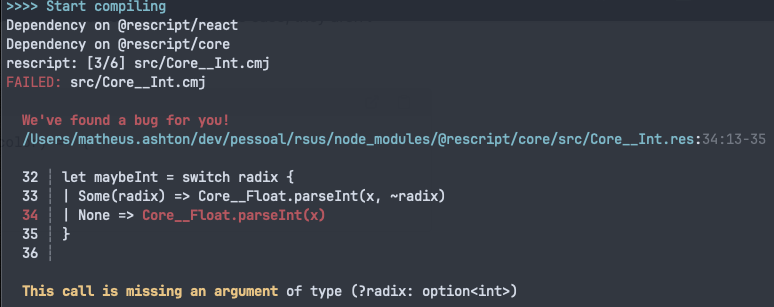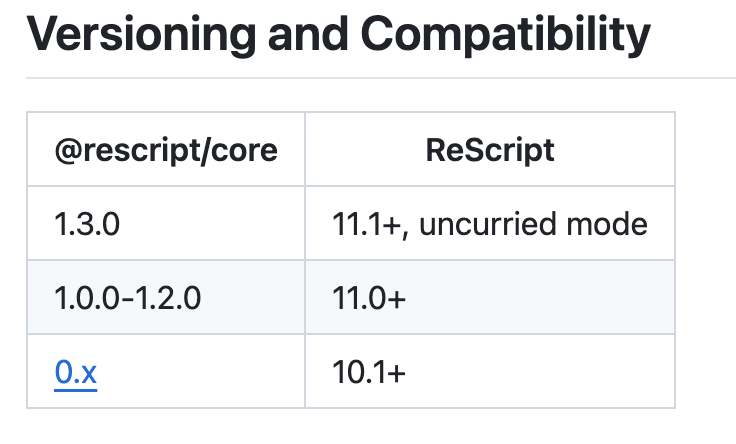I think I got the answer, not sure if interest you guys but I’ll leave here anyways in case someone has the same problem that I was having. I also created a minimal repro environment in this repo
The issue is:
Core__List module has a function defined reduceReverse:
let reduceReverse = (type a b, l: list<a>, acc: b, f) => {
let len = length(l)
if len < 1000 {
reduceReverseUnsafe(l, acc, f)
} else {
A.reduceReverseU(toArray(l), acc, f)
}
}
as you can see, the else branch does:
A.reduceReverseU(toArray(l), acc, f)
A is defined earlier as:
module A = {
let makeUninitializedUnsafe = Belt_Array.makeUninitializedUnsafe
let reduceReverseU = Belt_Array.reduceReverseU
let reduceReverse2U = Belt_Array.reduceReverse2U
}
So in the end, we’re calling Belt_Array.reduceReverseU
Checking Belt_Array’s definition here we can see that it calls the function with the uncurry syntax explicitly: f(. r.contents, getUnsafe(a, i))
So, the whole issue is, if uncurried is set to false in rescript.json the compiler assumes that the function that the Core__List.reduceReverse is receiving as argument is curried, but Belt_Array only accepts uncurried functions, since it’s explicitly using the uncurried syntax to call it, so the compiler throws an error.
If you change uncurried to true in rescript.json, the exception goes away, because now the compiler assumes that the function passed to Core__List.reduceReverse is already uncurried and would have no issues when Belt__Array calls it with the uncurried syntax.
In summary, @rescript/core is not compatible with uncurried: false as long as we use Belt underneath.
I think this could be stated in a clearer way in the documentation.
CC: @fham @jihchi @tsnobip


